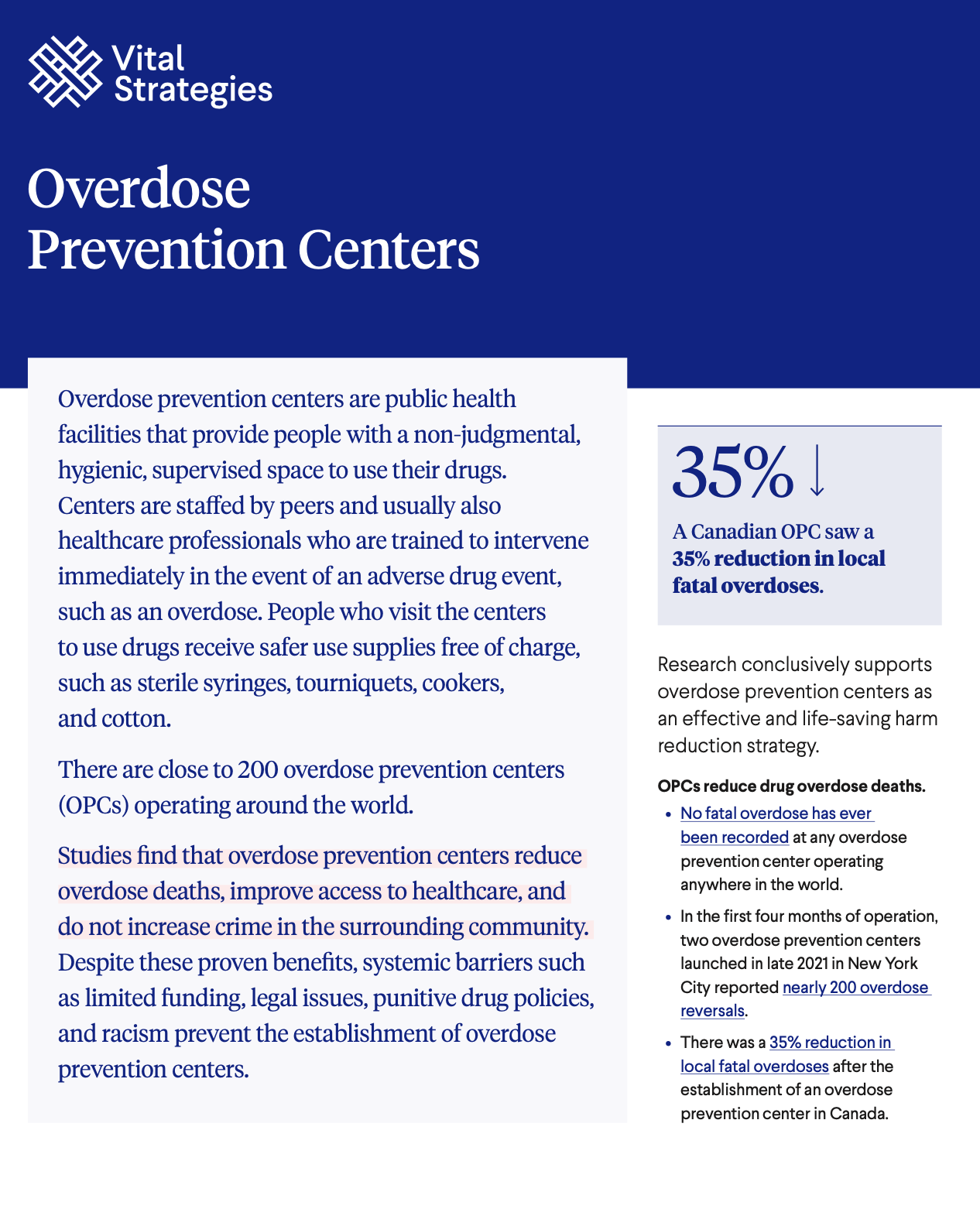Overdose prevention centers are public health facilities that provide people with a non-judgmental, hygienic, supervised space to use their drugs. Centers are staffed by peers and usually also healthcare professionals who are trained to intervene immediately in the event of an adverse drug event, such as an overdose. People who visit the centers to use drugs receive safer use supplies free of charge, such as sterile syringes, tourniquets, cookers,
and cotton.
This is one of five facts sheets explaining 5 interventions needed to end the overdoses crisis.
Additional fact sheets include:
Recent Abstracts
Effects of Heat on Early Childhood Development
Blood Lead Surveillance of Children and Pregnant Women in Tamil Nadu, India
Sportswashing through Media: Coca-Cola’s Olympic Play – A Research Report
What’s in Our Food?
Mais Dados Mais Saúde
More Data, Better Health – Primary Health Care
Mais Dados Mais Saúde: Experiência De Discriminação Cotidiana Pela População Brasileira
More Data, Better Health – Experience of everyday Discrimination by the Brazilian population
Monitoramento de Estratégias pelo Fim da Violência contra Crianças e Adolescentes
Harm Reduction: The Neglected Pillar of US Drug Policy
